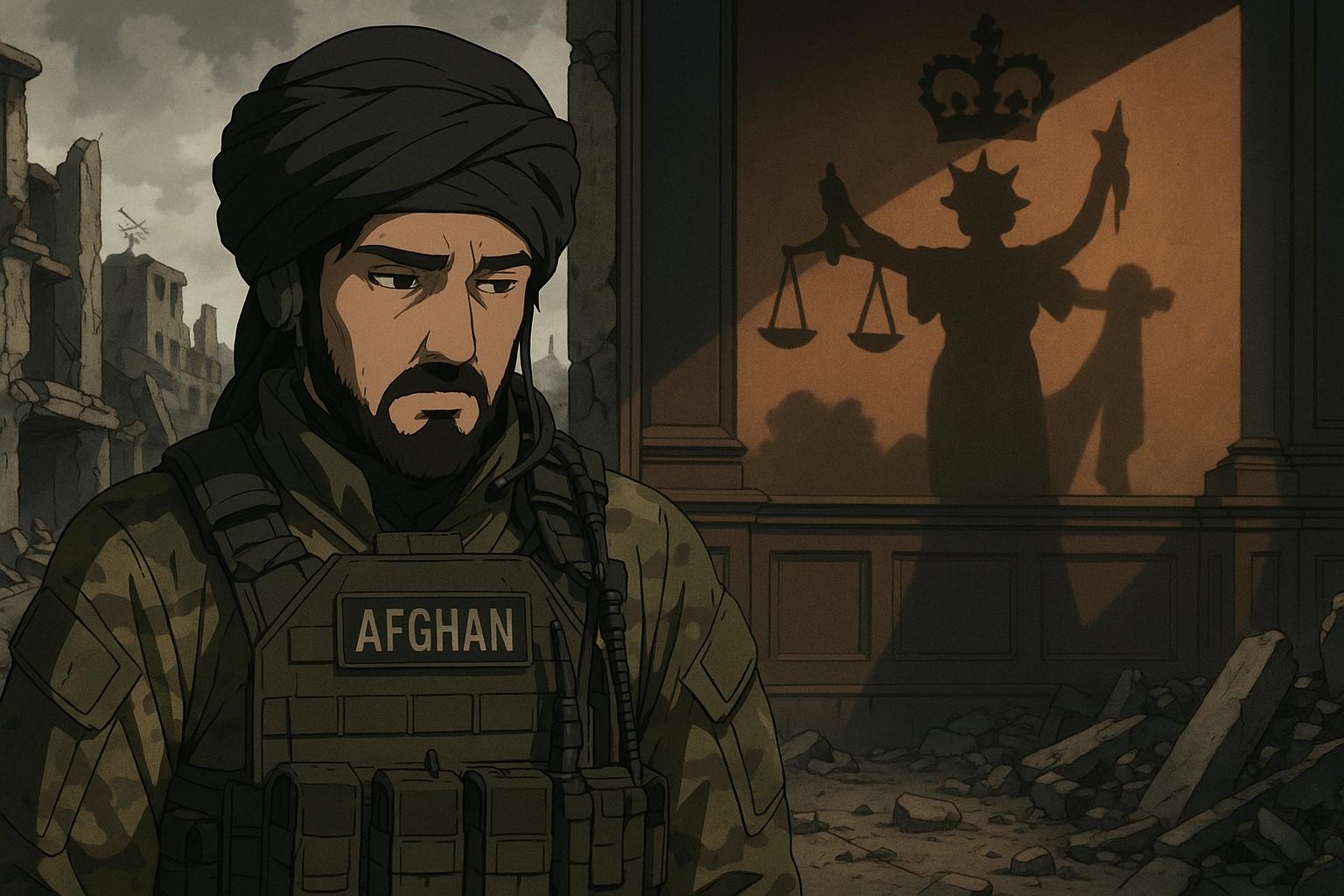The recent legal proceedings surrounding the resettlement of former Afghan special forces members highlight profound systemic issues within the UK Ministry of Defence (MoD)'s handling of applications from individuals who served alongside British troops. In a dramatic courtroom session, the High Court described the MoD's previous decision-making process as a “disaster area,” drawing comparisons to a “crime scene.” This grave assessment reflects the urgent scrutiny of an inquiry into potential war crimes allegedly committed by British forces in Afghanistan between 2010 and 2013, during which these Afghan allies fought side by side with UK forces.
Thousands of applications for sanctuary from Afghan personnel linked to elite units CF333 and ATF444, collectively referred to as the Triples, were reportedly rejected without sufficient justification. The MoD is currently reviewing around 2,000 applications, but this process has been sharply limited to those cases where MoD caseworkers actively referred the applicants to UK special forces for further assessment. This limitation raises serious questions about the efficacy and fairness of the review, especially considering the broader allegations of complicity and misconduct surrounding UK special forces.
The court heard compelling arguments from Thomas de la Mare KC, representing a former deputy commander of the Triples, who is spearheading the legal challenge on behalf of those still in Afghanistan. He posited that the MoD’s approach effectively imposed a blanket refusal on nearly all applications, with dire consequences for those affected. “These are life and death decisions,” he asserted, noting that many individuals and their families face significant threats of torture or execution due to their association with British forces.
Concerns also centre on a perceived conflict of interest, given that UK special forces have been heavily involved in the decision-making process regarding the very individuals they may have been implicated in mistreating. Notably, political pressure exerted on MoD officials to expedite the processing of applications may have hindered the quality of decisions, as highlighted during the review. Previous testimonies have been alarming; former veterans’ affairs minister Johnny Mercer voiced apprehensions over the inappropriate role of UK special forces in the decision-making process, branding it as "deeply inappropriate."
Systematic failings within the MoD have been underscored by ongoing investigations into the Afghan Relocations and Assistance Policy (ARAP). Despite initial pledges to facilitate the relocation of those who assisted British armed forces, evidence suggests that nearly 1,000 applicants remain stranded, with some waiting for years without decisions. The government has publicly acknowledged its shortcomings, admitting to misleading Parliament about the state of these resettlement applications.
Some reports suggest that applications from Afghan commandos have been continually blocked, leaving them in a perilous state since the Taliban's resurgence. Many former servicemen have fled to neighbouring countries to escape the looming spectre of violence and retribution, while those who remain face severe risks in an unstable environment.
As the judicial review unfolds, the implications for the UK’s obligations to those who have risked their lives in service alongside British forces cannot be overstated. The outcome may determine not only the fate of the applicants involved but also the integrity of the UK's commitment to its allies in times of need. The High Court proceedings are expected to culminate soon with a decision that could reshape the future for Afghan special forces allies still in peril in Afghanistan.
The Ministry of Defence's ongoing review process, while a step towards rectifying past injustices, faces immense scrutiny. It must grapple with the dual challenges of ensuring a fair examination of applications while being held accountable for past failures. Any reform needs to be both transparent and sensitive to the critical circumstances of those awaiting resolution in a volatile landscape.
In these fraught discussions, the voices of the Afghan commandos remain crucial, as their stories underscore the complexities of international military alliances and the responsibilities that endure long after a conflict has ended.
Reference Map
- Paragraph 1, 2, 4, 5, 6, 8
- Paragraph 2, 4, 5
- Paragraph 3, 6
- Paragraph 4, 7
- Paragraph 3
- Paragraph 3, 7
- Paragraph 3, 6
Source: Noah Wire Services
